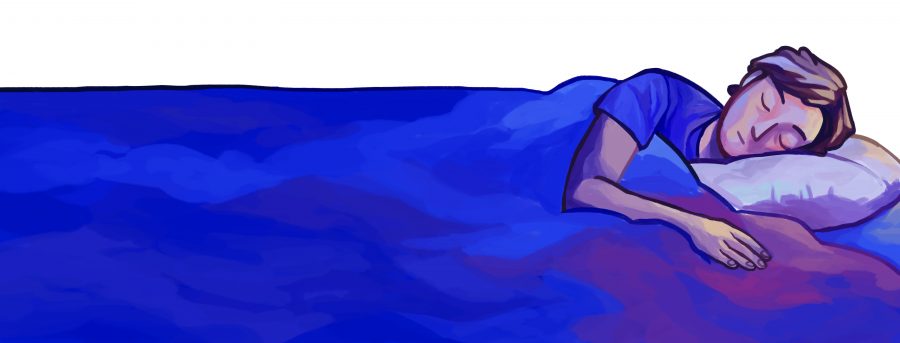Written by Yuki Klotz-Burwell
Published in the September 11, 2015 issue
Like most high school students, I do not get enough sleep. When I was a sophomore, I believed that getting a good amount of sleep was unnecessary to be successful. I was wrong. For the last two years, I procrastinated until the last minute and started on my homework after midnight on school nights. My habits thrust me into a destructive cycle of daily naps and absurdly late bedtimes. I had trouble focus- ing in class, depending on coffee to keep me awake each morning. As I slept later and later, I noticed other effects besides fatigue: my grades slipped and I became more and more unhappy.
I remember one day during my junior year when I stayed up until four in the morning, and I felt worse than usual. Forgetting my phone felt like the end of the world, and the thought of having to take both math and physics quizzes later in the day left me in tears. I was a mess for the rest of the day, and I ended up leaving early after breaking down in class. However, my behavior was not abnormal. According to studies published in a University of Arkansas professor’s book, “Sleep and Affect: Assessment, Theory and Clinical Implications,” we are more inclined to act emotional in stressful circumstances when we are sleep-deprived.
The problem was that I did not know I was sleep-deprived. Although I was getting an average of four to five hours of sleep a night, I thought I was okay. I felt abnormally tired, but I dismissed it as a common issue for teens. I became used to doing homework during the hours after midnight, thinking that it was the time I was most productive. I procrastinated and did nothing during the day except try to stay awake until it was time to start working. When my mood started changing and I felt as though I were in a constant state of drowsiness, I realized something was wrong: I needed sleep.
My initial solution for combatting my intense sleep deprivation was by taking long naps after school to make up for the sleep I missed. I crashed in my bed every day, and would sleep for two to three hours. My mistake was in the length of my naps; while short naps can increase productivity and alertness, longer naps can increase fatigue and grogginess. According to the National Sleep Foundation, longer naps can lead to negative effects on nighttime sleep, and these naps will intensify any existing sleeping problems. My long naps were not helpful, and I decided I needed to find another solution.
My solution was incredibly simple—I needed to sleep earlier. Although I originally believed I was at my most productive after midnight, the amount of coffee and 5-hour Energy I was drinking seemed to prove otherwise. So I went to bed earlier, regardless of whether or not I had finished my homework. I learned to place my health as my top priority, and to let the other aspects of my life fall into place after that. Although I felt unsatisfied with my incomplete homework, I noticed a lift in my mood and an overall happiness. I looked at everything more rationally, and small problems were small, not as impossible as they had seemed before. Getting my sleep schedule back on track allowed me to retain natural energy throughout the day to complete my homework, thus letting me sleep earlier. All the speeches we hear and assemblies on sleep we are required to attend relay a message we need to understand: sleep is important.












